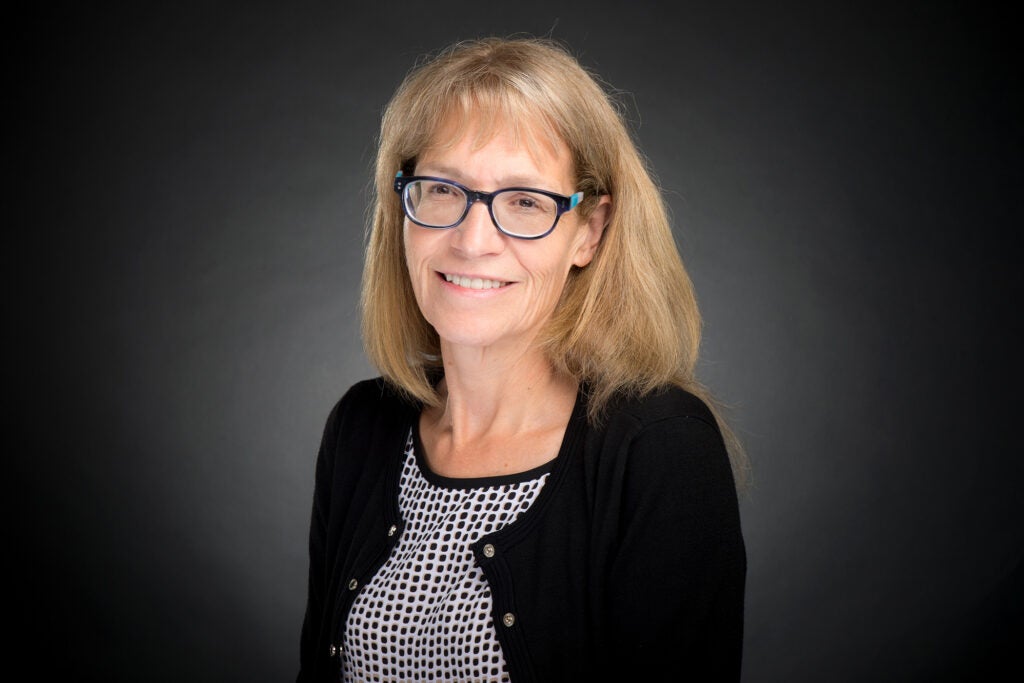Survivorship Research Initiative Seminar Series
Upcoming Presentations:
Past Presentations:
2024
December 13, 2024: Cognitive outcomes in cancer survivors: predictors and potential interventions, presented by Noha Sharafeldin, MBBCh, MSc, PhD, University of Alabama at Birmingham
Dr. Sharafeldin is an Assistant Professor of Medicine in the Division of Hematology & Oncology, University of Alabama at Birmingham (UAB), Institute for Cancer Outcomes and Survivorship, and O’Neal Comprehensive Cancer Center. Received training in Medicine and an MSc of Public Health from Faculty of Medicine, Ain Shams University, Egypt; and a PhD in Clinical Epidemiology from University of Pierre and Marie Curie and in Public Health specializing in genetic epidemiology from University of Alberta, Canada. Her research program focuses on the study of genetic architecture of cancer and cancer outcomes, clinical, social, and genetic risk prediction to identify cancer survivors at risk for adverse outcomes including functional and cognitive outcomes, cardiotoxicity, and risk for second malignancies across the lifespan, as well as implementation of interventions to improve treatment-related outcomes in cancer survivors. She is PI on the cTAG and dcTAG studies (Diet and Cognitive Training and Attitudes towards Genetics): remote randomized controlled interventions to improve cognitive function in cancer survivors; and CAPITAL (Cognition in Advanced Prostate cancer patients treated with Androgen Blockers): a prospective cohort study to examine the rate of cognitive decline in patients receiving novel therapeutic agents. She co-leads the National Clinical Cohort Collaborative (N3C) Oncology Domain Team examining outcomes in cancer patients using the national N3C EMR-based resource. Her work has been supported by awards from the NCI, Leukemia & Lymphoma Society (LLS) and Be The Match Foundation.
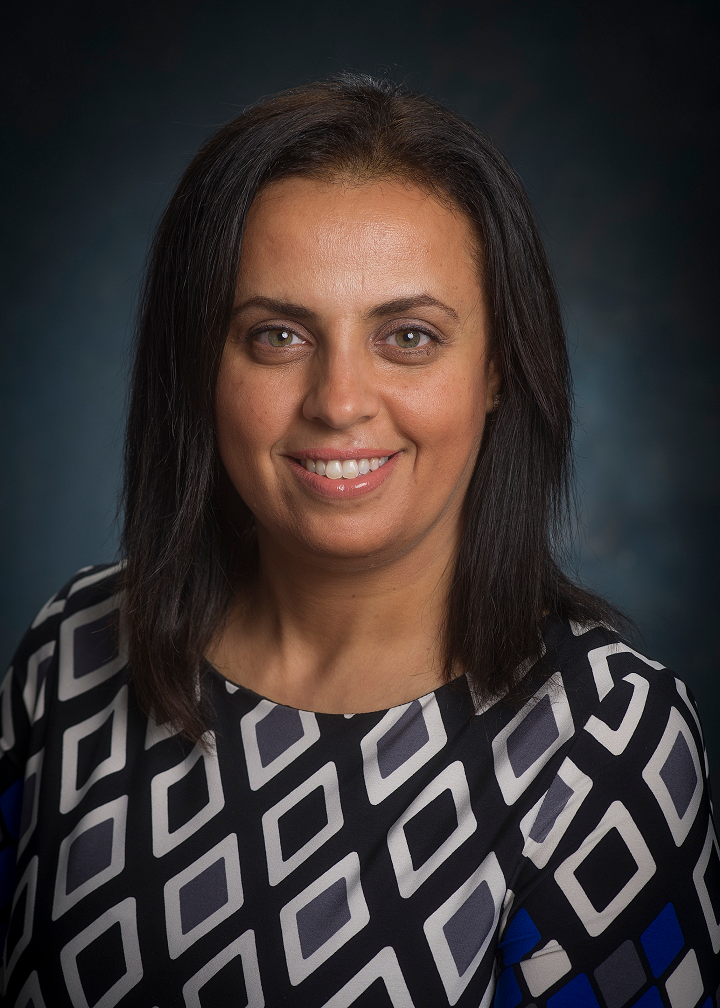
March 8, 2024: Genomic risk prediction of cardiometabolic late effects in survivors of childhood cancer, Presented by Yadav Sapkota, St. Jude Children’s Research Hospitality
Yadav Sapkota, PhD, is an Assistant Member in the Department of Epidemiology and Cancer Control at St. Jude Children’s Research Hospital. In addition, he co-Chairs Genetics Working Group of the Childhood Cancer Survivor Study and the Genetics & Genomics Working Group of the Cancer Control & Survivorship Program at St. Jude. His research interests include genetic susceptibility and individual risk prediction of cancer treatment-related late effects in survivors of childhood cancer, including those of African/African American ancestry. A key focus of his research is to understand the mechanisms underlying late cardiotoxicity, using innovative approaches such as patient-derived human induced pluripotent stem cells and multi-omics methods. He has authored >70 peer-reviewed publications and currently the MPI of two NIH-funded R01 grants.

February 9, 2024: Improving Equitable Health Outcomes in Cancer: Catalyzing Transdisciplinary Scientific Collaborations to Transform Practice and Policy, Presented by Alyce Adams, PhD, Stanford University
Dr. Adams is the inaugural Stanford Medicine Innovation Professor. She is a Professor in the Departments of Health Policy, Epidemiology and Population Health, and (by courtesy) Pediatrics. She also serves as Associate Chair for Health Equity and Community Engagement in the Department of Health Policy and as an Associate Director in the Stanford Cancer Institute (Office of Cancer Health Equity) and Stanford Impact Labs. Dr. Adams’ research seeks to inform health system and policy level solutions to promote equitable chronic disease treatment outcomes among older adults with multiple chronic conditions. Dr. Adams co-leads the NIDDK funded Diabetes Research for Equity through Advanced Multilevel Science Center for Diabetes Translational Research. She is also Past Chair of the Board of Directors at AcademyHealth. Before joining Stanford in 2021, Dr. Adams was Associate Director for Health Care Delivery and Policy Research at Kaiser Permanente Division of Research where she maintains an adjunct investigator appointment.
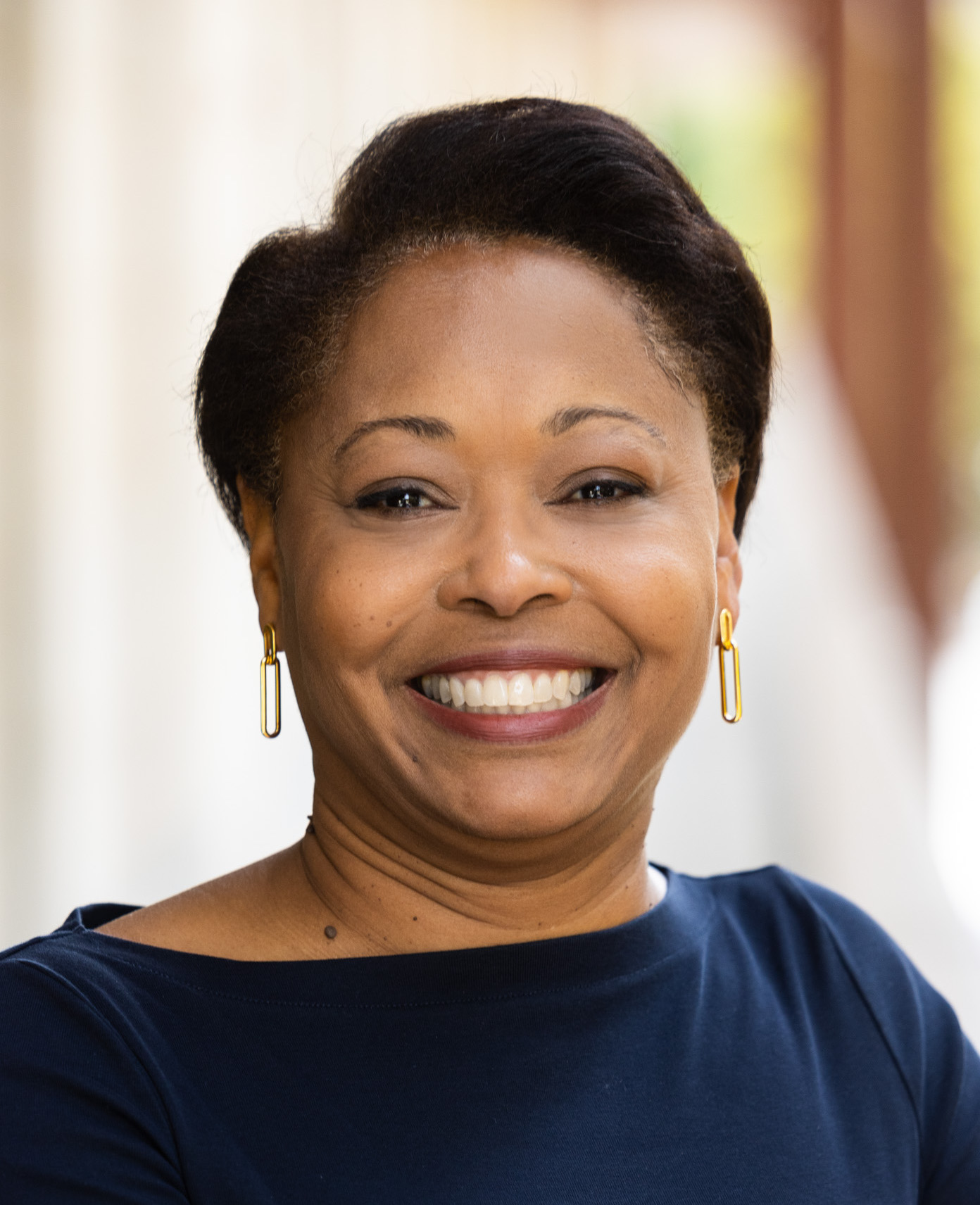
January 12, 2024: Cardinale Smith, MD, PhD, Tisch Cancer Hospital, Mt. Sinai
Cardinale B. Smith, MD, PhDis a Professor with tenure in the Division of Hematology and Medical Oncology and the Brookdale Department of Geriatrics and Palliative Medicine at the Icahn School of Medicine at Mount Sinai, Chief Medical Officer at the Tisch Cancer Hospital, Vice President and Chief Quality Officer for Cancer Clinical Services and Associate Director for Community, Outreach and Engagement for the Tisch Cancer Center, Mount Sinai Health System. She is a medical oncologist and palliative care physician whose clinical practice is focused on lung cancer and palliative care. Her research to date has focused on improving the quality of care for patients with cancer with a focus on health equity, development of novel models of equitable cancer care delivery and doctor-patient communication. She is currently the PI on two grants from the National Cancer Institute: CONNECT (Conversations about Cancer with Clinicians and Patients), which evaluates the role of implicit bias among oncologists on minority cancer patient outcomes; and ALERT (mAchine LEarning to impRove paTient care), which utilizes machine learning predictions to engage oncologists in earlier serious illness communication. She is also an MPI on a grant from the National Institute on Minority Health and Health Disparities to study the role of patient beliefs, stigma, medical mistrust, and physicians’ implicit bias on racial disparities in lung cancer screening. Finally, Dr. Smith has had numerous publications in peer-reviewed journals, and in 2015 was named one of the Top 40 Inspirational Leaders under 40 by the American Academy of Hospice and Palliative Medicine.

2023
January 13, 2023: Exercise, Nutrition, and Weight Management Interventions in Oncology Care, Presented by Dr. Melinda Irwin, Yale University
Melinda L. Irwin, PhD, MPH is the Susan Dwight Bliss Professor of Epidemiology and Associate Dean of Research at the Yale School of Public Health, Associate Director (Population Sciences) in the Yale Cancer Center, and Deputy Director (Public Health) in the Yale Center for Clinical Investigation. Nationally, Dr. Irwin co-leads the SWOG Cancer Research Network Cancer Survivorship Committee. In 2018, Dr. Irwin completed the yearlong Hedwig van Ameringen Executive Leadership in Academic Medicine (ELAM) Program. Dr. Irwin’s experience working across departments, schools, and with interdisciplinary groups of investigators has provided her with the skills to train and mentor effectively.
Dr. Irwin is a prominent leader in the field of cancer prevention and control research. Her research over the past 20 years has focused on randomized trials of exercise and weight loss on biological markers, treatment side effects and quality of life in cancer patients and survivors. She has received funding from the National Institutes of Health, American Cancer Society, Breast Cancer Research Foundation, American Institute for Cancer Research, Komen for the Cure, and Livestrong Foundation. She is currently leading an NCI-funded clinical trial examining the impact of nutrition and exercise on improving chemotherapy completion rate, endocrine therapy adherence, biomarkers, body composition and quality of life in women beginning chemotherapy for breast cancer.
Dr. Irwin is committed to training the next generation of scientists, and is currently leading an NCI T32-funded Cancer Prevention and Control Training Program for pre- and post-doctoral fellows and an NCI R25-funded Transdisciplinary Research on Energetics and Cancer (TREC) Training Program for early career investigators. At Yale, Dr. Irwin has advised, mentored and trained over 100 trainees. Her commitment to training the next generation of scientists is evident in the enthusiasm she brings to mentoring. Her vision is to maximize opportunities for early career investigators so they can become leaders in their respective fields and have a maximal impact on the health and well-being of patients and the population.
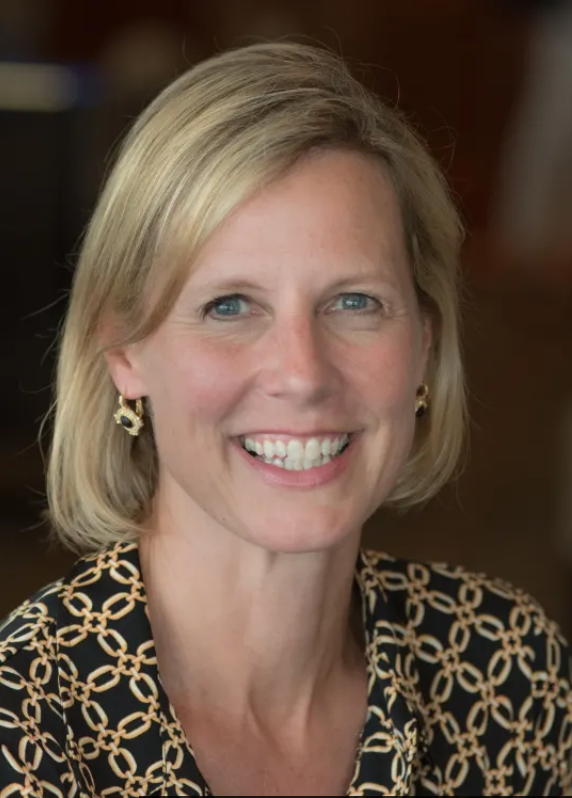
February 10, 2023: “Addressing the Psychosocial Needs of Cancer Survivors in 2023” Presented by Patricia Ganz, MD, UCLA Fielding School of Public Health, David Geffen School of Medicine at UCLA
Patricia Ganz is Professor of Health Policy and Management, in the Fielding School of Public Health, Professor of Medicine in the David Geffen School of Medicine at UCLA, and Director of the Center for Cancer Prevention & Control Research at the Jonsson Comprehensive Cancer Center. She teaches Evidence Based Medicine and Organizational Change.
Dr. Ganz received her M.D. from the University of California, Los Angeles, School of Medicine in 1973, and completed post-doctoral training in internal medicine and medical oncology at the UCLA Medical Center. She has been on the faculty of the School of Medicine since 1977, and joined the faculty of the School of Public Health in 1992. Since 1993 she has been the Director of Cancer Prevention and Control Research at the Jonsson Comprehensive Cancer Center. In 1999 she was awarded an American Cancer Society Clinical Research Professorship for “Enhancing Patient Outcomes across the Cancer Control Continuum.” Dr. Ganz was elected to the Institute of Medicine (IOM) in 2007. She served on the National Cancer Institute Board of Scientific Advisors from 2002-2007 and on the American Society of Clinical Oncology (ASCO) Board of Directors from 2003-2006. She received the American Cancer Society Medal of Honor in 2010.
Dr. Ganz is a pioneer in the assessment of quality of life in cancer patients, and has focused much of her clinical and research efforts in the areas of breast cancer and its prevention. At the Jonsson Comprehensive Cancer Center, she leads the scientific program focused on Patients and Survivors. Her major areas of research include cancer survivorship and late effects of cancer treatment, cancer in the elderly, and quality of care for cancer patients. She currently co-chairs the Patient Centered Outcomes Research committee of the NRG cooperative group funded by the National Cancer Institute.
She was a founding member of the National Coalition for Cancer Survivorship (NCCS) in 1986, and has dedicated much of her research career to studying both the acute and late effects of cancer treatment in patients and survivors. She has served on two Institute of Medicine (IOM) consensus studies that have focused on the needs of cancer survivors—the 2005 report “From Cancer Patient to Cancer Survivor: Lost in Transition”(Hewitt, Greenfield et al. 2006) and the 2007 report “Cancer Care for the Whole Patient: Meeting Psychosocial Needs.”(Adler and Page 2007) She has played an active role in the dissemination of these report recommendations nationally and internationally. In 2013, she chaired the IOM consensus study report entitled “Delivering High-Quality Cancer Care: Charting a Course for a System in Crisis,”(Levit, Balogh et al. 2013) that has had a major impact on health care policy related to cancer care delivery. Her policy work related to quality of care has largely occurred as part of her membership in the IOM National Cancer Policy Forum since 2005 and as its Vice Chair since 2009, where she has played a critical leadership role in numerous workshops and meetings. Her bibliography is extensive with more than 400 peer-reviewed publications, and four edited books on evidence-based cancer care, cancer survivorship and quality of care, and breast cancer outcomes.
Dr. Ganz’s full bibliography can be found in MyBibliography: http://www.ncbi.nlm.nih.gov/sites/myncbi/1-g8z2N0tT_Ai/bibliography/47141262/public/?sort=date&direction=ascending
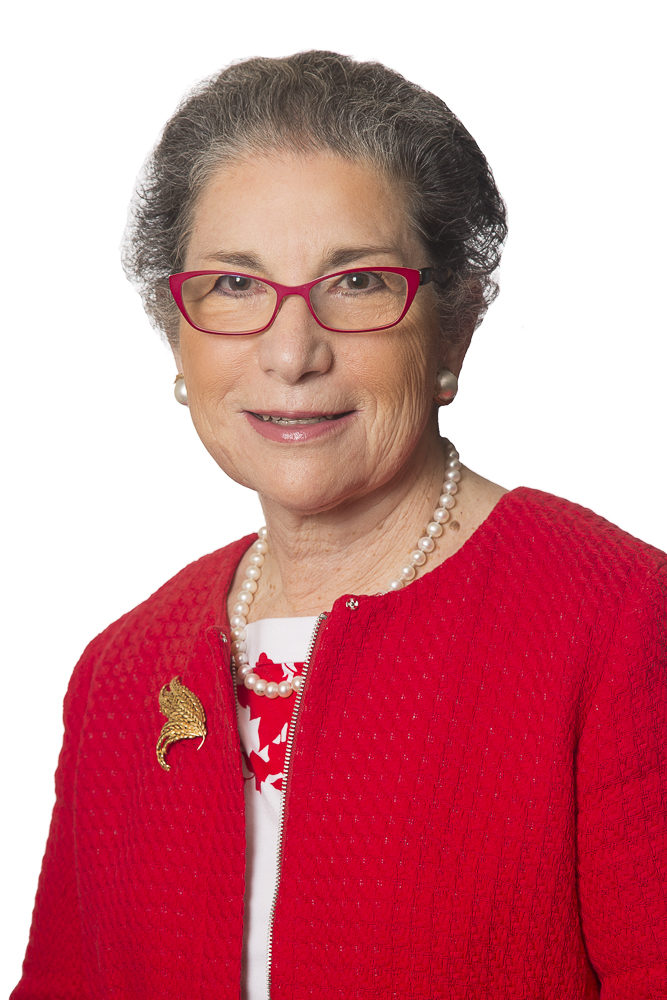
March 10, 2023: “The ACTION (Alberta Complementary Therapy and Integrative ONcology) Centre: Overview and Research Summary” Presented by Linda Carlson, PhD, University of Calgary
Dr. Linda Carlson holds the Enbridge Research Chair in Psychosocial Oncology, is Full Professor in Psychosocial Oncology in the Department of Oncology, Cumming School of Medicine at the University of Calgary, and Adjunct Professor in the Department of Psychology. She is the Director of Research and works as a Clinical Psychologist at the Department of Psychosocial Resources at the Tom Baker Cancer Centre (TBCC), where she has worked since 1997. She also holds a CIHR SPOR-funded mentorship chair in innovative clinical trials, which funds the TRACTION program (Training in Research And Clinical Trials in Integrative Oncology), supporting a multidisciplinary group of University of Calgary fellows studying Integrative Oncology.
Dr. Carlson received the Kawano New Investigator Award from the International Psycho-Oncology Society in 2006; the William E. Rawls Prize in cancer control from the National Cancer Institute of Canada/Canadian Cancer Society in 2007; a New Investigator Award from the Canadian Psychological Association Health Section in 2009, the inaugural Research Excellence award from the Canadian Association of Psychosocial Oncology in 2010, the Arete Award for Research Excellence from the Department of Oncology at the University of Calgary in 2012, the Bernard Fox Memorial Award from the International Psycho-Oncology Society in 2019, and was shortlisted for the Dr. Rogers Prize in Complementary and Alternative Medicine in 2013, 2015, 2017 and 2019. She is also a fellow of the Society for Behavioral Medicine and the Mind and Life Institute, is the President-Elect of the Society for Integrative Oncology, and is Co-Editor-in-Chief for the official International Psycho-Oncology Society journal: The Journal of Psychosocial Oncology Research and Practice.Dr. Carlson’s research in Psychosocial Oncology, Integrative Oncology and Mindfulness-Based Cancer Recovery has been published in many high-impact journals and book chapters, and she published a patient manual in 2011 with Michael Speca entitled: Mindfulness-Based Cancer Recovery: A step-by-step MBSR approach to help you cope with treatment and reclaim your life, in addition to a professional training manual in 2009 (2nd Edition 2017) with Shauna Shapiro entitled The Art and Science of Mindfulness: Integrating mindfulness into psychology and the helping professions. She has published over 200 research papers and book chapters, holds several millions of dollars in grant funding and is regularly invited to present her work at international conferences, most recently in Netherlands, Switzerland, China, Australia, New Zealand, Africa, Israel and all across Canada and the USA. She presented a TEDx talk called Mindfulness for Personal and Collective Evolution in 2016, you can find the video here: https://www.youtube.com/watch?v=QgZd5GvZ5Qs
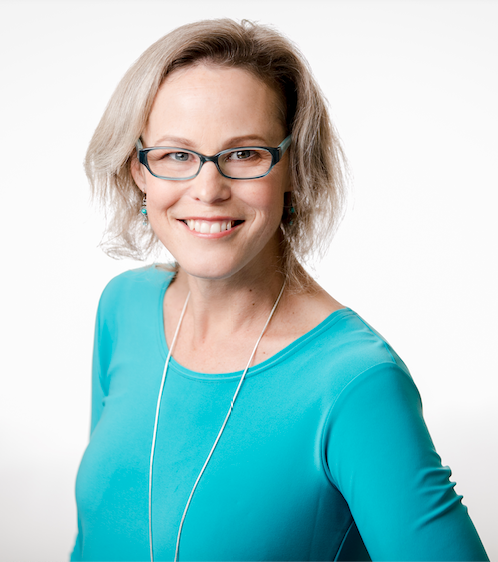
April 14, 2023: “Symptom Management and Quality of Life among People Living with Metastatic Cancer” Presented by Claire Conley, PhD, Georgetown University
Dr. Conley obtained her PhD in clinical health psychology from the Ohio State University in 2018. She completed her post-doctoral training in the NCI-funded T32 Behavioral Oncology Training Program at Moffitt Cancer Center in Tampa, Florida.
Dr. Conley’s program of research broadly focuses on psychosocial issues across the cancer continuum, from prevention to end-of-life. Key themes of her work include: (1) quality of life and survivorship issues in breast cancer, (2) prevention and early detection among those at increased risk for breast cancer; and (3) reducing cancer-related health disparities. Dr. Conley’s research aims to promote health behavior change and improve quality of life in the context of cancer, with the ultimate goal of translating basic behavioral research into behavioral interventions. She has received research funding from the National Cancer Institute, American Cancer Society, and the Breast Cancer Research Foundation.
As an early-stage investigator, Dr. Conley’s research accomplishments have been nationally recognized by organizations such as the American Psychosomatic Society (2020 Young Investigator Colloquium Scholar), the American Psychological Association (2019 Early Career Achievement Award), and the Society of Behavioral Medicine (2018 Outstanding Student Award). She has also been recognized for her service to professional organizations, including the Society of Behavioral Medicine Cancer Special Interest Group (2022 Outstanding Service Award) and the Society for Health Psychology (2022 Barbara A. Keeton Volunteer of the Year Award).
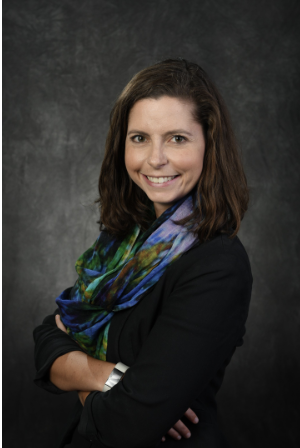
May 12, 2023: “Effect of Remotely Monitored Aerobic Training on Cardiopulmonary Fitness among Men with Prostate Cancer on Active Surveillance”, presented by June Chan, ScD, University of California San Francisco
June M. Chan, ScD, is Professor and Vice Chair for Education in the Department of Epidemiology & Biostatistics and she is also a Steven & Christine Burd-Safeway Distinguished Professor in the Department of Urology at the University of California San Francisco. Professor Chan is a cancer epidemiologist, and her research focus includes health behaviors and cancer survivorship, prostate cancer outcomes, and biomarkers for prostate cancer prognosis.

June 9, 2023: Cancer Predisposition in the Genomic Era: Consideration for Cancer Survivors, Presented by Sharon Plon, MD, PhD, Baylor College of Medicine
Dr. Sharon Plon is a board-certified medical geneticist and a longstanding cancer genetics researcher identifying new cancer susceptibility genes and studying the implementation of genomic testing in medicine. Dr. Plon holds the Dan L Duncan Comprehensive Cancer Center Professorship at Baylor College of Medicine in the Departments of Pediatrics and Molecular and Human Genetics and a member of the Human Genome Sequencing Center. Dr. Plon also serves as Assistant Dean in the School of Medicine at Baylor College of Medicine. Dr. Plon serves as Principal Investigator with Donald (Will) Parsons and Amy McGuire on the NHGRI/NCI-U01 Texas KidsCanSeq multi-institutional trial that studies the incorporation of CLIA clinical genome-scale exome sequencing into the care of childhood cancer patients in the diverse patient populations in Texas. Since 2013, Dr. Plon has served as one of the Principal Investigators of the Clinical Genome (ClinGen) Resource and co-chairs the ClinGen Hereditary Cancer Clinical Domain. She also currently co-chairs the germline reporting effort of the national NCI/COG Pediatric MATCH Precision Oncology trial. Dr. Plon is a prior member of the American Society of Human Genetics Board of Directors and the NIH-National Advisory Council for Human Genome Research. She is a member of the 5th Edition Tumour Genetics Volume Editorial Board.
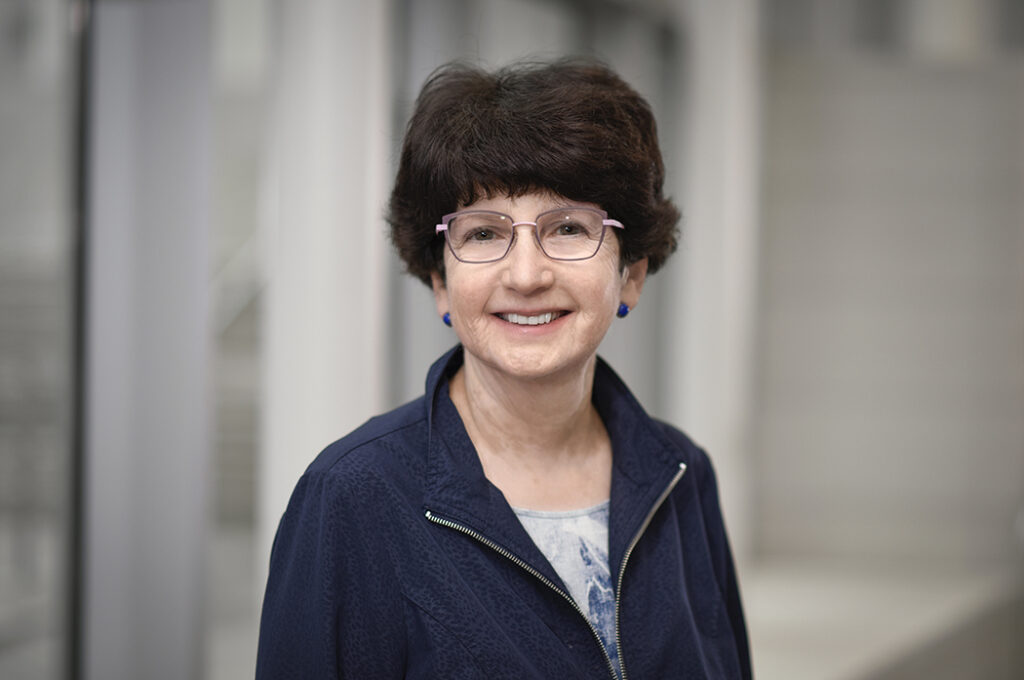
September 8, 2023: Oncology Primary Care Partnership to Improve Comprehensive Survivorship Care, presented by Hoda Badr, PhD, Baylor College of Medicine
Dr. Badr is a health psychologist and tenured Professor in the Department of Medicine, Section of Epidemiology and Population Science at Baylor College of Medicine. She is also the leader of the Cancer Prevention and Population Sciences Program at the Dan L Duncan Comprehensive Cancer Center. Dr. Badr’s research program focuses on developing and implementing psychosocial interventions that leverage family support to improve patient and caregiver health behaviors and well-being across the cancer control continuum. Her early research sought to refine the methods and models used to study dyadic processes in cancer. Over the years, she expanded that focus to elucidate how individual, interpersonal, and system factors affect patient and caregiver interactions with the healthcare system. She has also employed community-engaged research methods to develop technology-based and multilevel interventions to improve healthcare delivery and outcomes for minority and medically underserved cancer patients and their caregivers. In terms of research productivity, Dr. Badr has over 80 peer-reviewed publications and has been continuously extramurally funded for the past 20 years. Her work has been supported by the National Cancer Institute, American Cancer Society, National Institute of Dental and Craniofacial Research, National Institute of Nursing Research, and U.S. Department of Defense.
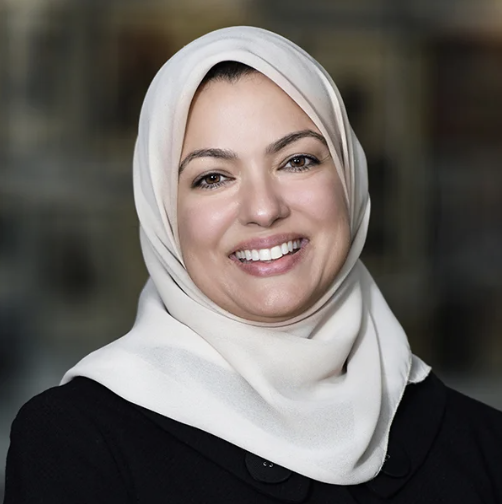
October 13, 2023: National Coalition for Cancer Survivorship’s 2023 State of Survivorship Survey Results, presented by Shelley Fuld Nasso, CEO, National Coalition for Cancer Survivorship
Shelley Fuld Nasso is Chief Executive Officer of the National Coalition for Cancer Survivorship, where she advocates to transform the cancer care system for everyone touched by cancer. NCCS’ mission is to advocate for quality cancer care for all people touched by cancer. Founded by and for cancer survivors, NCCS created the widely accepted definition of survivorship and defines someone as a cancer survivor from the time of diagnosis and for the balance of life. NCCS has worked with legislators and policy makers to represent cancer patients and survivors in efforts to improve their quality of care and quality of life after diagnosis. Their unique niche in the cancer advocacy landscape is promoting policy change to ensure quality cancer care. Their vision is to be an advocacy organization that reflects the needs of all cancer survivors to effect policy change at the national level. NCCS represents the millions of Americans who share a common experience – the survivorship experience – living with, through and beyond a cancer diagnosis.
Link to survey results and slides
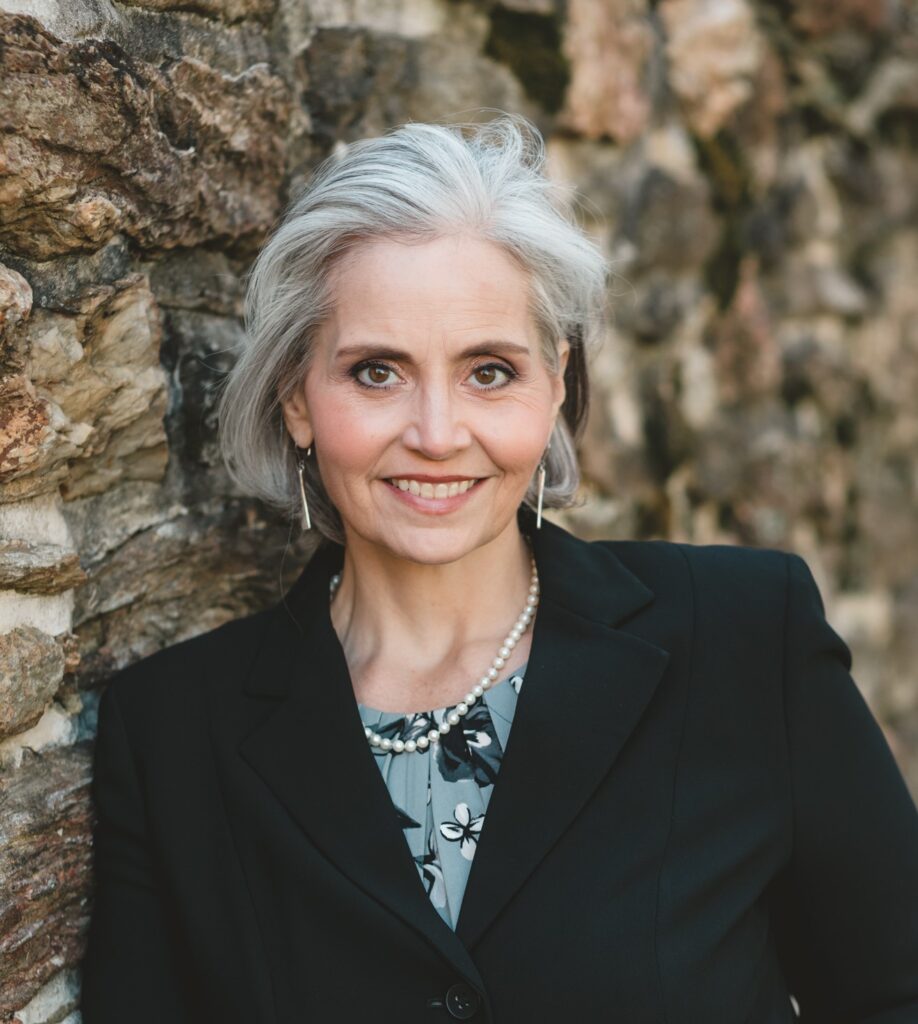
November 10, 2023: Cognitively-Based Compassion Training for Cancer Survivors and Their Supportive Partners: Impact on Health-Related Quality of Life and Stress-Related Biology, presented by Thaddeus Pace, PhD, University of Arizona
Thaddeus Pace, PhD, is a biopsychologist and Associate Professor in the Colleges of Nursing (Advanced Nursing Practice and Science Division), Medicine (Department of Psychiatry), and Science (Department of Psychology) at the University of Arizona in Tucson. He received his PhD in neuroscience and psychology from the Department of Psychology at the University of Colorado at Boulder, and completed a postdoctoral fellowship in human stress immunology at Emory University in Atlanta. His current research explores stress biology in populations who experience psychological distress, in particular cancer survivors and their family members, and firefighters. Informed by this work, Dr. Pace also investigates the effectiveness of novel interventions designed to optimize psychological, inflammatory, and endocrine functioning in those at risk for stress-related illness. These include a kindness and compassion meditation program called CBCT (Cognitively-Based Compassion Training), and other contemplative interventions such as the Healthy Minds Program App. Dr. Pace’s research is supported by grants from the National Cancer Institute and the National Institute of Occupational Safety and Health. He is a PopTech Science Fellow, and was named one of Tucson’s “40 Under 40” by the Tucson Hispanic Chamber of Commerce.
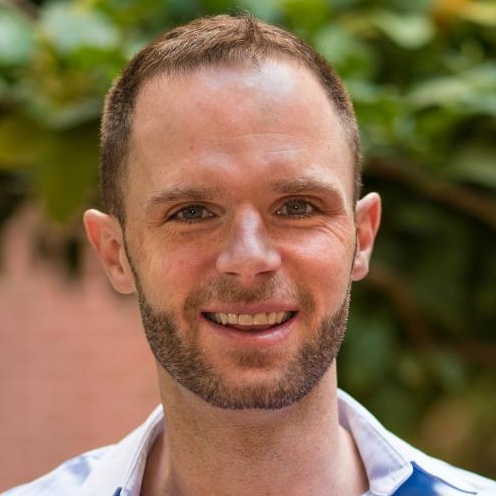
December 8, 2023: ‘Addressing Disparities in Genomic Care for Hereditary Cancer,’ Presented by Anita Kinney, PhD, Rutgers School of Public Health and Rutgers Cancer Institute
Dr. Anita Kinney is a professor in the Department of Biostatistics and Epidemiology and director of the Center for Cancer Health Equity at the School of Public Health. She also serves as the associate director for cancer health equity and engagement at Rutgers Cancer Institute of New Jersey and director of ScreenNJ, a statewide cancer prevention and screening program. In these roles, Kinney seeks to advance cancer health equity in cancer prevention and care delivery through community partnerships and engagement, outreach, and a team science approach.
Kinney has sustained research funding by the National Institutes of Health for nearly 30 years with a focus on cancer prevention, community and clinical genetics, and survivorship. Kinney’s research program is internationally recognized for studying and reducing cancer health disparities and translating genomic discoveries into clinical and public health practice. Her research brings a combination of behavioral science, clinical, and epidemiologic perspectives to address unsolved cancer problems in diverse populations and settings.
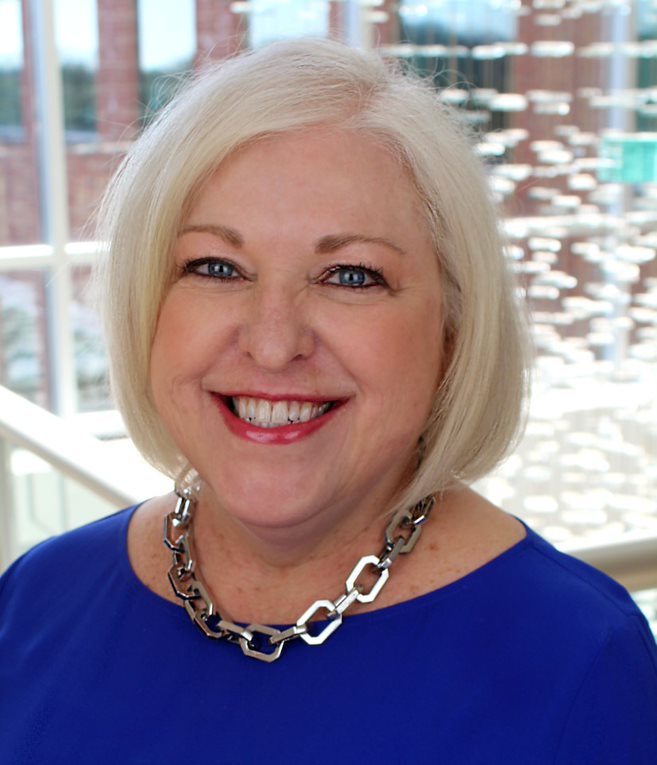
2022:
Navigating the Use of Patient-Reported Outcomes in Cancer Research and Practice: The PROTEUS Consortium’, Dr. Claire Snyder, Johns Hopkins School of Medicine
December 9, 2022
Dr. Claire Snyder is Professor of Medicine (Division of General Internal Medicine) and Oncology at the Johns Hopkins School of Medicine, with a joint appointment in Health Policy & Management in the Bloomberg School of Public Health. She is Director of the Johns Hopkins Program for Building Lifestyle, Outcomes, and Care Services Research in Cancer (BLOCS). Dr. Snyder’s research focuses on the quality of cancer care, with emphasis in two areas: quality of life for cancer patients and coordination of care between primary care providers and cancer specialists. She has received competitive, peer-reviewed funding from the National Cancer Institute, American Cancer Society, and Patient-Centered Outcomes Research Institute. Dr. Snyder has held various leadership positions in international organizations focused on quality-of-life and quality-of-care. She is apast president of the International Society for Quality of Life Research. For the American Society of Clinical Oncology (ASCO), she served on the Health Services Committee, Quality of Care Committee, Survivorship Care Planning Task Force, and Patient-Reported Outcomes Panel. Previously, Dr. Snyder worked at the U.S. National Cancer Institute and edited Outcomes Assessment in Cancer: Measures, Methods, and Applications (Cambridge University Press). She began her career in the private sector at Covance Health Economics and Outcomes Services Inc. Dr. Snyder received a BA cum laude in Public Policy Studies with a certificate in Health Policy from Duke University. She received a Master of Health Science in Health Policy in 2000 and a PhD in Health Policy & Management in 2005 from the Johns Hopkins Bloomberg School of Public Health. She is originally from New Orleans, Louisiana, and currently resides in Baltimore, Maryland.
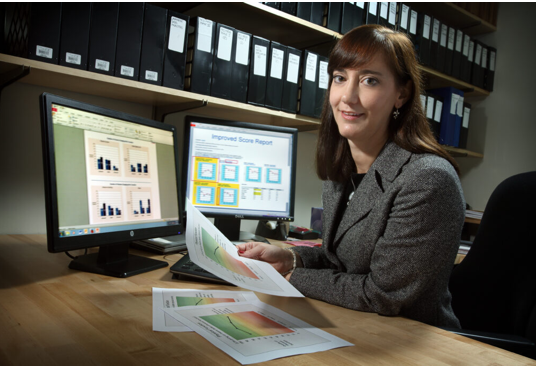
Survival and Survivorship after AYA Cancer: Recent Trends and Opportunities, Presented by Dr. David Freyer, Keck School of Medicine, USC
November 11, 2022
Dr. David Freyer is Professor of Clinical Pediatrics, Medicine, and Population and Public Health Sciences at the Keck School of Medicine, University of Southern California (USC). He currently serves as Director of the Survivorship and Supportive Care Program in the Cancer and Blood Disease Institute at Children’s Hospital Los Angeles (CHLA), and as Director of the Cancer Survivorship Program and Co-Director of the Adolescent and Young Adult (AYA) Cancer Program, both at the USC Norris Comprehensive Cancer Center. He is founding Co-Director of the USC Center for Young Adult Cancer Survivorship Research. Dr. Freyer received his medical degree from the Des Moines University College of Osteopathic Medicine and Surgery. He took his adult-focused general rotating internship at the Chicago College of Osteopathic Medicine and Hospitals, pediatrics internship and residency at Rush University Medical Center, and pediatric hematology/oncology fellowship at the University of Michigan/CS Mott Children’s Hospital. He received his MS in Clinical Research Design and Statistical Analysis from the University of Michigan School of Public Health. Dr. Freyer’s clinical care and research are concentrated in cancer survivorship, cancer control/supportive care, and AYA oncology with interests in treatment-related toxicity, survivorship care transition, cancer care disparities, and patient-reported outcomes. From 2009-2019 he served as Chair of the Children’s Oncology Group (COG) AYA Oncology Discipline Committee and continues as an active investigator in this and other COG committees. In 2018, Dr. Freyer was honored with the Robert M. McAllister Faculty Mentoring Award in the Keck School of Medicine at USC. For numerous consecutive years, his clinical expertise has been recognized with citations in “Best Doctors in America.”
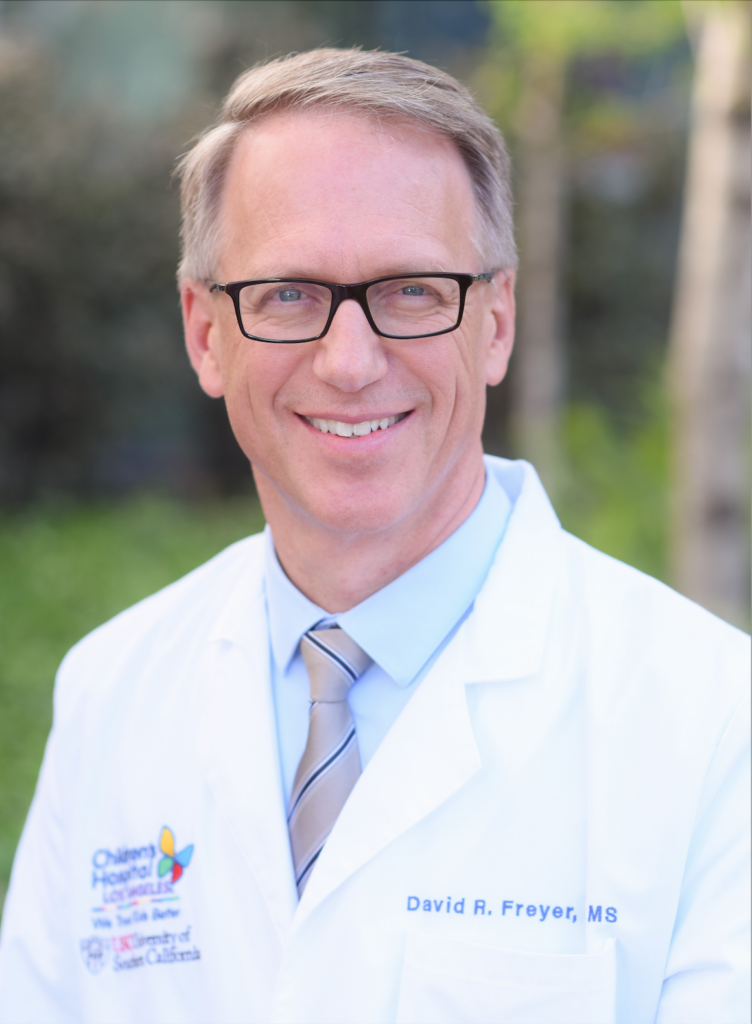
Predicting and Preventing Adverse Outcomes in Cancer Survivors, Presented by Dr. Smita Bhatia, UAB
October 14th, 2022
Dr. Smita Bhatia, MD, MPH completed her training in Blood Banking and Hematology/ Oncology and Epidemiology from the University of Minnesota. She served as founding chair of the Dept. of Population Sciences at City of Hope from 2006 to2014. Dr. Bhatia joined University of Alabama at Birmingham (UAB)in 2015 to establish the Institute for Cancer Outcomes and Survivorship. She is the White Endowed Professor in Pediatric Oncology at UAB. With over 380 peer-reviewed publications and continuous funding from NCI andLLS since 2000, she is an internationally renowned leader in cancer outcomes and survivorship. She serves as Associate Editor for the Journal of Clinical Oncology and Senior Editor for Cancer Epidemiology Biomarkers and Prevention. She is an elected member of American Society for Clinical Investigation and Association of American Physicians. She is the recipient of the Frank H Oski Lectureship Award from ASPHO, the Clinical Scholar Award from LLS and the Outstanding Investigator Award from the NCI. She was the recipient of the Dean’s Excellence Award in Mentoring (2020), and the Distinguished Professor award from UAB (2021).
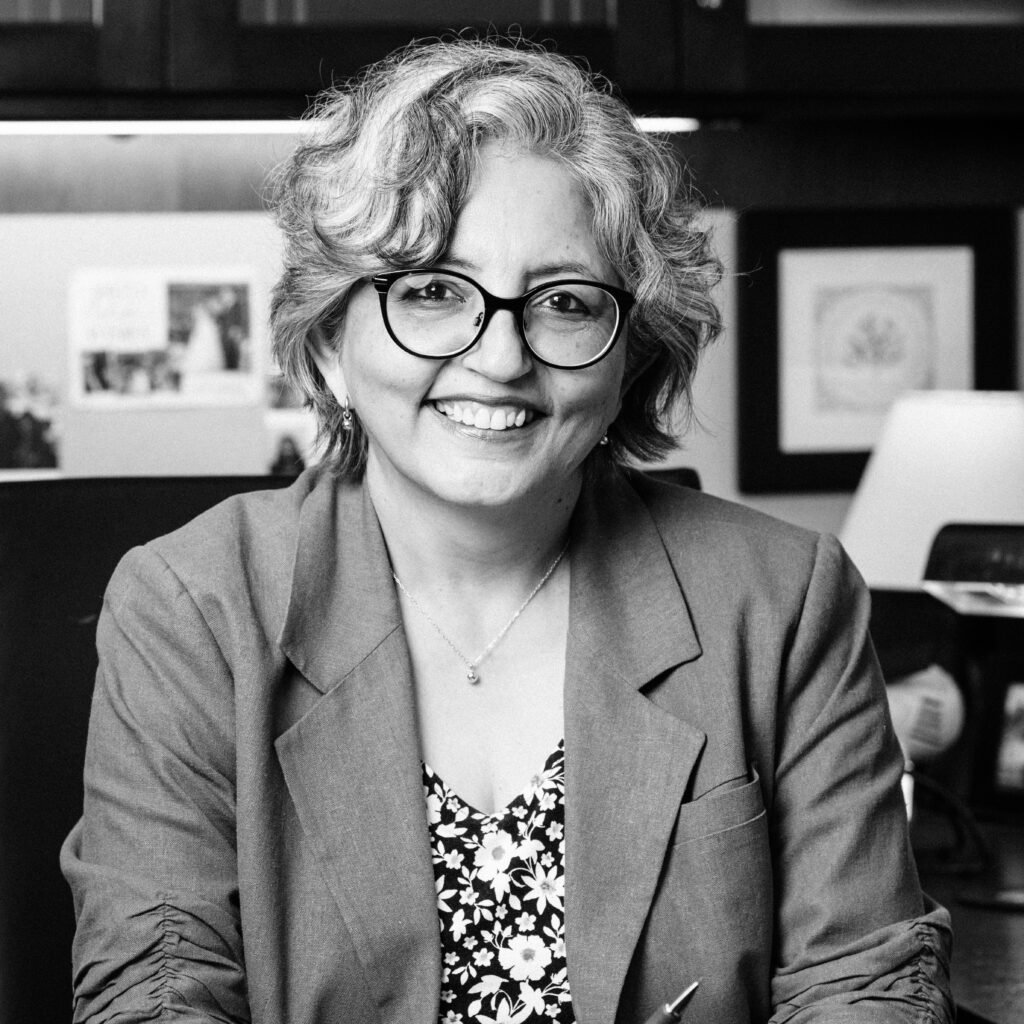
NCI Survivorship Research and Funding, Emily S. Tonorezos (National Cancer Institte (NCI))
May 13th, 2022
Emily S. Tonorezos, MD, MPH, serves as director of the Office of Cancer Survivorship, part of the Division of Cancer Control and Population Sciences at the National Cancer Institute (NCI). In this position, Dr. Tonorezos leads NCI’s eforts to address the challenges facing cancer survivors and their families — to prevent or mitigate adverse effects and to improve the health and well-being of cancer survivors from the time of diagnosis through the remainder of their lives.
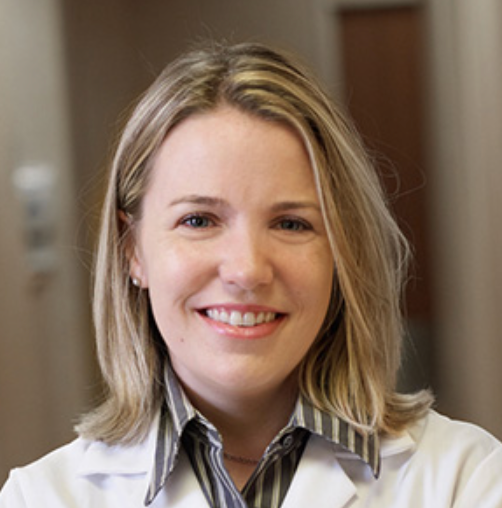
The Power of Cancer Surveillance Data: Population-based Research Among Diverse Young Adult Cancer Survivors in California, Presented by Dr. Kimberly Miller (USC)
March 11, 2022:
Kimberly Miller, PhD, MPH is an Associate Professor in the Department of Population and Public Health Sciences and Department of Dermatology at the Keck School of Medicine of the University of Southern California. Her research focuses on understanding the health behaviors and healthcare systems factors important to cancer prevention and survivorship for children, adolescents, and young adults.
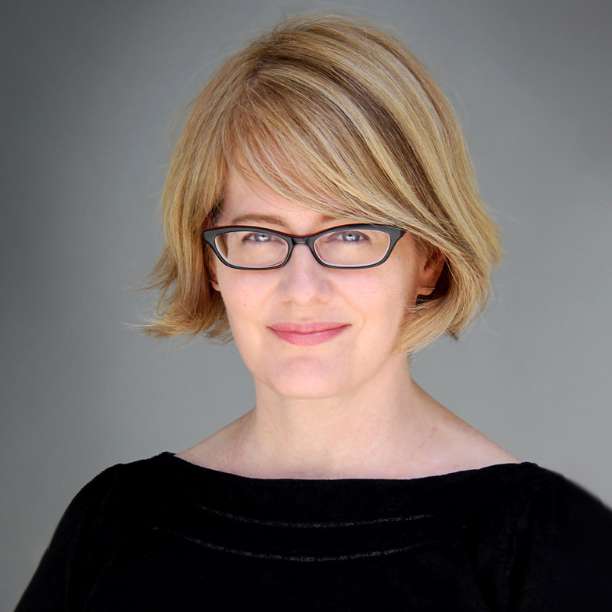
Accelerated Aging in Childhood Cancer Survivors – From Observation to Intervention, Presented by Dr. Kirsten Ness (St. Jude Children’s Research Hospital)
April 8, 2022
Dr. Kristen Ness, PPT, PhD, FAPTA, joined the faculty at St. Jude in 2006 as an Assistant Member and was promoted to a Full Member in 2015. She is a physical therapist and clinical epidemiologist, with research focusing on recognizing, describing, and remediating functional limitations in childhood cancer survivors.
